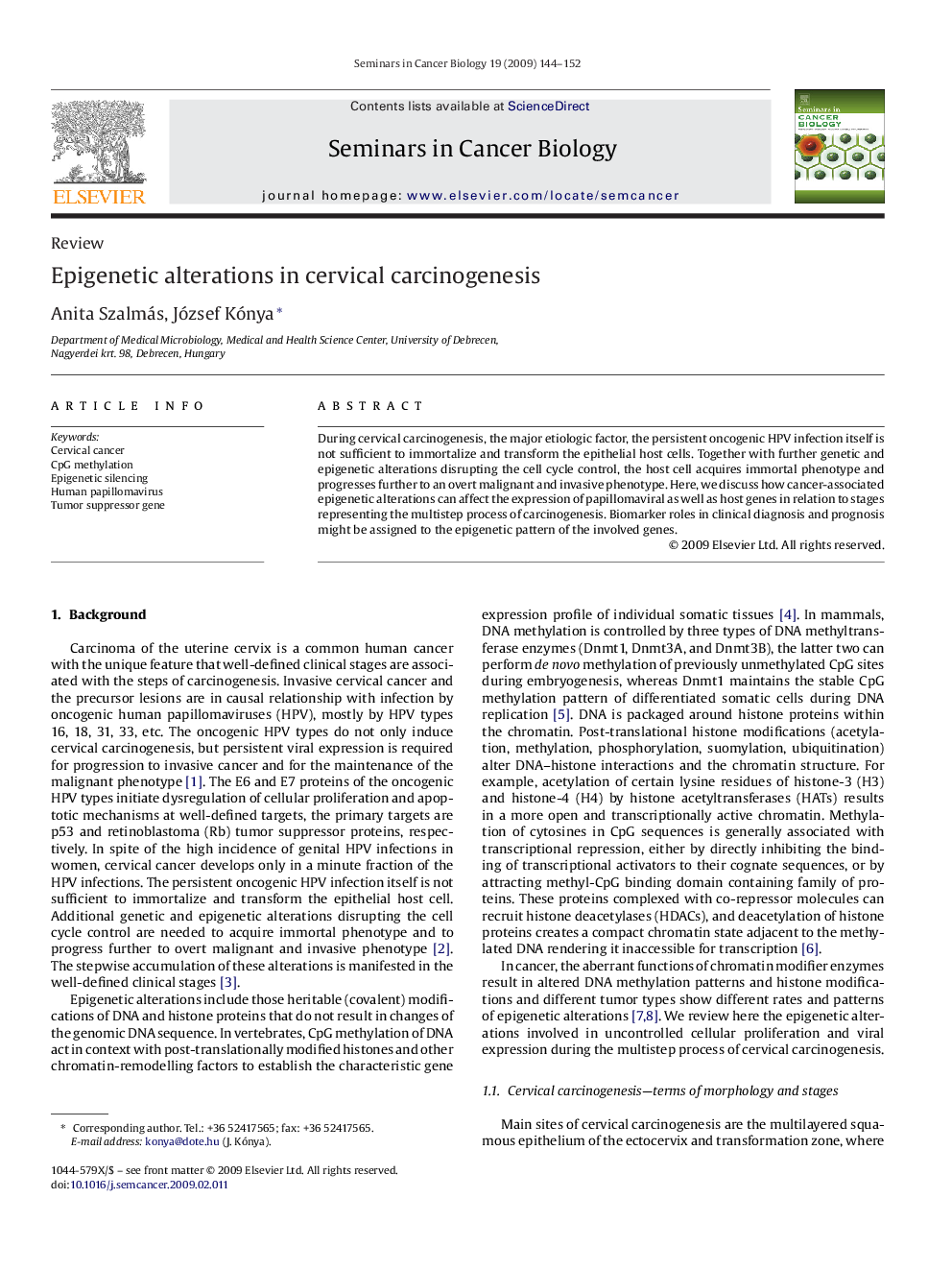| Article ID | Journal | Published Year | Pages | File Type |
|---|---|---|---|---|
| 2024013 | Seminars in Cancer Biology | 2009 | 9 Pages |
Abstract
During cervical carcinogenesis, the major etiologic factor, the persistent oncogenic HPV infection itself is not sufficient to immortalize and transform the epithelial host cells. Together with further genetic and epigenetic alterations disrupting the cell cycle control, the host cell acquires immortal phenotype and progresses further to an overt malignant and invasive phenotype. Here, we discuss how cancer-associated epigenetic alterations can affect the expression of papillomaviral as well as host genes in relation to stages representing the multistep process of carcinogenesis. Biomarker roles in clinical diagnosis and prognosis might be assigned to the epigenetic pattern of the involved genes.
Keywords
Related Topics
Life Sciences
Biochemistry, Genetics and Molecular Biology
Biochemistry
Authors
Anita Szalmás, József Kónya,
